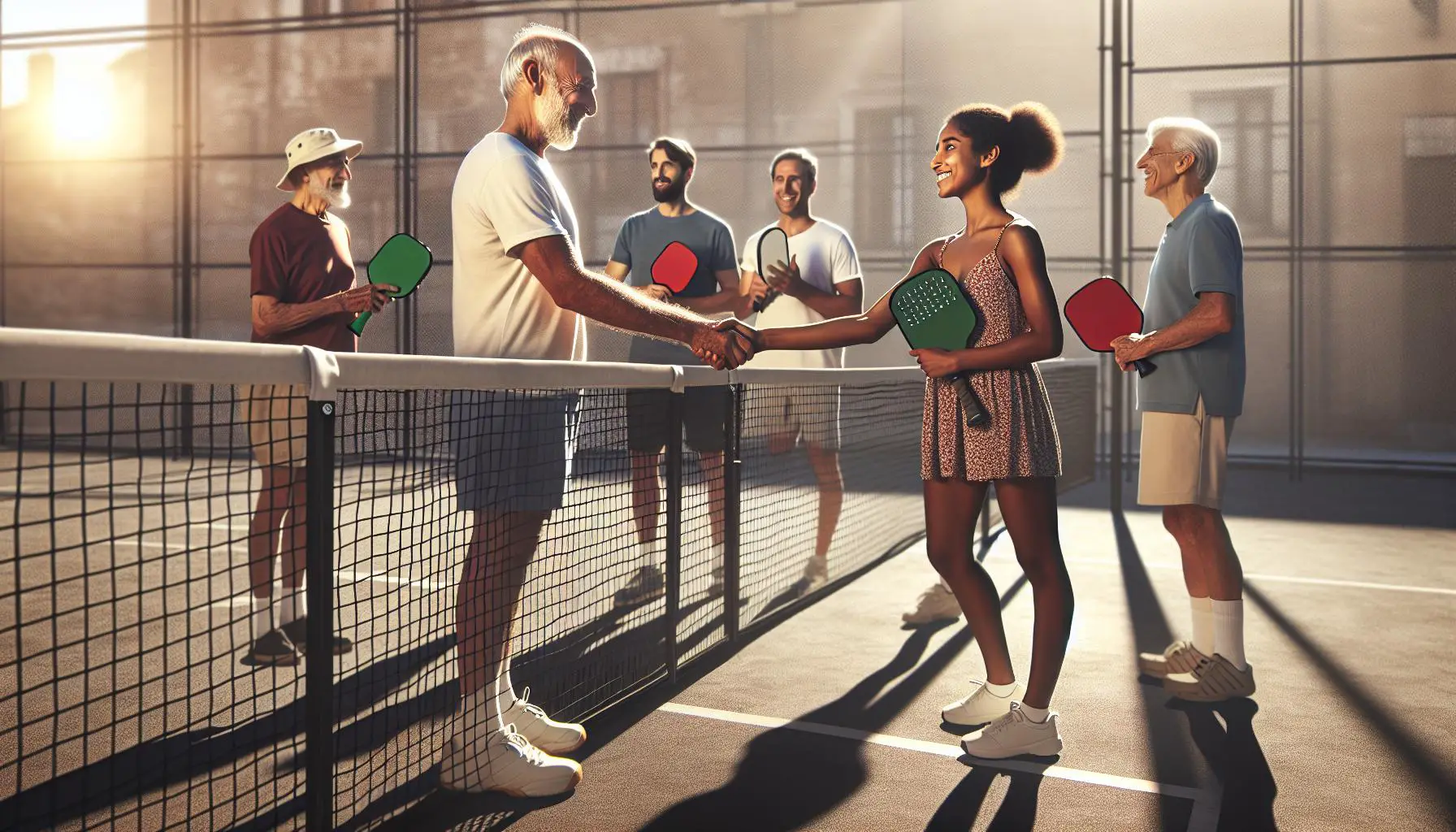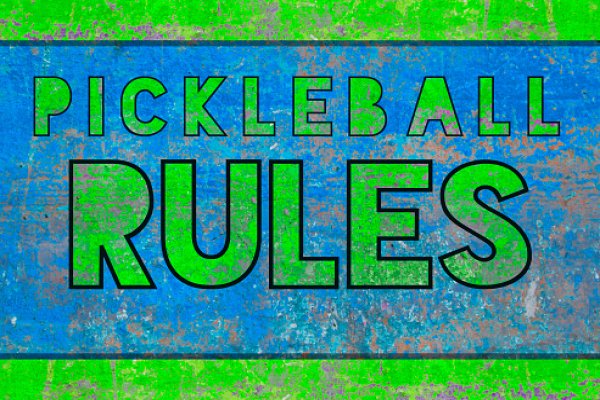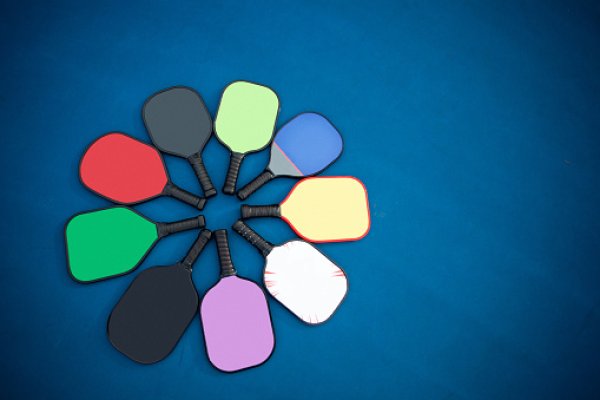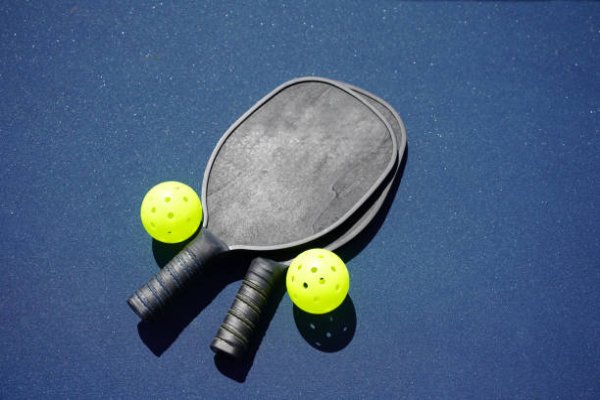Pickleball, the sport that’s taken neighborhoods and retirement communities by storm, is all fun and games until a rule dispute puts a damper on the day. Whether you’re a seasoned player or new to the game, disagreements over the rules can quickly escalate, turning an enjoyable afternoon into a contentious standoff.
Luckily, there’s a playbook for navigating these choppy waters, ensuring that every game ends with high-fives instead of hard feelings. From understanding the official rules to fostering a spirit of sportsmanship, we’ll dive into how to keep the game going smoothly, even when disputes arise.
Understanding Official Pickleball Rules
Navigating the waters of pickleball disputes begins with a solid understanding of the official rules of the game. Knowing the rules isn’t just about ensuring fairness; it’s about fostering a spirit of sportsmanship and enjoyment for all players involved. Whether you’re a newcomer to the sport or a seasoned player, revisiting the official rulebook can be a game-changer.
Pickleball, a sport that blends elements of tennis, badminton, and ping-pong, is governed by a specific set of rules designed to keep the game fair, competitive, and fun. These rules cover everything from the dimensions of the court and the equipment to the manner in which the ball can be served and volleyed.
One of the crucial areas where misunderstandings often occur is the service. According to the official rules, the serve must be made underhand, and the paddle must contact the ball below the waist level. Furthermore, the server’s feet must be behind the baseline; stepping on or across the line before hitting the ball constitutes a fault.
Another frequent source of contention is the non-volley zone, commonly known as the “kitchen”. Players are prohibited from volleying the ball—that is, hitting it out of the air before it bounces—if they are standing within this seven-foot zone adjacent to the net. This rule prevents players from gaining an unfair advantage by standing too close to the net.
To assist players in understanding and applying these rules, many communities and clubs provide quick-reference guides or even host rules clinics. These resources are invaluable for avoiding disputes and ensuring that every game is played in the true spirit of pickleball.
| Common Areas of Dispute | Rule Clarification |
|---|---|
| Service | Underhand serve; paddle below waist; behind baseline |
| Non-Volley Zone | No volleying in the “kitchen” |
| Scoring | Games typically to 11, win by 2; serve sequence and position matters |
For those seeking to delve deeper, the USA Pickleball Association (USAPA) publishes an official rulebook that is updated periodically to reflect changes and clarifications. This comprehensive guide is available for download on their website, offering an in-depth look at the nuanced rules that govern the game.
Communication is Key

Effective communication is the cornerstone of resolving disputes over pickleball rules on the court. When disagreements arise, the ability to discuss the situation calmly and clearly can make all the difference. Players should always strive to express their concerns without escalating the tension. This involves using respectful language, maintaining a non-confrontational tone, and actively listening to the other person’s perspective. Remember, the goal isn’t to win an argument but to ensure the game proceeds fairly and enjoyably for everyone.
One practical approach is to pause the game and gather around. This allows all involved parties to share their viewpoints without shouting across the court. It’s also helpful to refer directly to the official pickleball rulebook if there’s one on hand. Having the rules accessible during gameplay can provide a quick resolution and clarify any misunderstandings. Many players find it beneficial to have a digital version of the rulebook saved on their smartphones for easy access during matches.
In instances where players cannot agree on an interpretation of the rules, considering a temporary compromise might be necessary to continue the game. For example, if there’s a dispute about whether a ball was in or out, replaying the point can be a fair way to move past the disagreement. This approach emphasizes sportsmanship and the spirit of the game over strict adherence to contested details.
Utilizing a neutral third party, such as a spectator familiar with the rules or a player from another court, can also aid in resolving disputes. Sometimes, an external perspective can offer an unbiased interpretation of the situation, helping players reach an agreement more quickly. However, it’s essential to ensure that any third party consulted is agreed upon by all players involved.
Here are some key points to remember when communication is crucial:
- Use respectful language and a calm tone.
- Pause the game to discuss the issue without distractions.
- Refer directly to the official rulebook whenever possible.
- Consider replaying points or agreeing on a temporary compromise.
- Consult a neutral third party if an agreement cannot be reached.
By prioritizing clear and respectful communication, players can navigate disputes more effectively, ensuring the game remains enjoyable for everyone involved.
Resolving Disputes Amicably

In the world of pickleball, disputes over rules can quickly escalate if not handled with care and understanding. To ensure the game remains enjoyable for everyone involved, it’s crucial to approach each disagreement with the aim of resolving it amicably.
One of the first steps in this process is encouraging open communication among players. Rather than jumping to conclusions or letting frustration take the helm, players should calmly express their concerns and clearly explain their perspectives. It’s important to listen actively to what others have to say. This approach helps in understanding the root of the misunderstanding and lays the groundwork for a fair solution.
To facilitate a more informed discussion, it’s advisable to have an official rulebook on hand. This allows players to refer to the exact wording of the rules in question, minimizing the chances of misinterpretation. Knowing the official rules thoroughly can prevent many disagreements from occurring in the first place and provides a solid basis for resolving those that do arise.
When a direct resolution seems out of reach, suggesting a temporary compromise can help keep the game moving and the spirits high. For instance, agreeing to replay a point or deferring to a default rule for the duration of the game can prevent a dispute from souring the experience. The key is to ensure that all players feel their concerns have been acknowledged and that the game remains fair and enjoyable.
In situations where players cannot reach an agreement on their own, inviting a neutral third party to offer their perspective can be invaluable. This could be a more experienced player not involved in the game or someone familiar with pickleball rules who can provide an unbiased opinion. Their external viewpoint may help clarify misunderstandings and suggest a resolution that all parties can accept.
Above all, maintaining respect for each other throughout the discussion is vital. Disputes over the rules should never devolve into personal disagreements. By keeping interactions polite and focused on the game, players reinforce the underlying principle of sportsmanship that pickleball and other sports are built upon.
By following these steps, players not only resolve their current disagreements but also develop a stronger foundation for handling future disputes. Open, respectful communication, a thorough understanding of the rules, and a willingness to compromise are key ingredients in ensuring that pickleball remains a fun and engaging activity for everyone involved.
Seeking a Third-Party Opinion

Sometimes, despite a player’s best efforts to resolve disputes over pickleball rules through direct discussion and referencing the official rulebook, reaching a mutual agreement proves challenging. In such situations, seeking a third-party opinion can be extremely beneficial. This approach introduces an unbiased perspective that might help clarify the rules and facilitate a fair resolution.
When considering a third-party to help resolve a dispute, it’s important to look for someone who is not only neutral but also knowledgeable about pickleball rules. This could be another player not involved in the game, a spectator familiar with the sport, or, if available, a referee. The key is to ensure that the third-party’s primary objective is to help interpret the rules accurately and maintain the spirit of the game.
Steps to Involve a Third-Party
- Identify a Neutral Observer: Players should first agree on a mutually acceptable third-party. This person must not have a stake in the game’s outcome and should be recognized by both parties as impartial.
- Present the Dispute Clearly: Both parties need to clearly and concisely present their understanding of the disputed rule or situation to the third-party. This helps avoid confusion and ensures the third-party has all the necessary information to make an informed decision.
- Respect the Decision: Once the third-party has provided their opinion, it’s crucial for all players involved in the dispute to respect this decision. Even if it’s not the outcome they hoped for, accepting the third-party’s advice demonstrates sportsmanship and respect for the rules.
Benefits of Third-Party Mediation
The benefits of involving a third-party in resolving disputes over pickleball rules are numerous. Not only does it help prevent the escalation of disagreements, but it also adds a level of fairness and objectivity that might be difficult to achieve otherwise. Below are some key advantages:
- Fairness: A neutral third-party is more likely to provide an impartial interpretation of the rules, ensuring a fair resolution.
- Efficiency: Third-party mediation can quickly resolve disputes, allowing players to return to their game with minimal disruption.
- Preservation of Relationships: By removing the personal element from the dispute resolution process, relationships among players are more likely to remain intact.
Fostering a Spirit of Sportsmanship

When disputes over pickleball rules arise on the court, fostering a spirit of sportsmanship can significantly impact the resolution process. Sportsmanship embodies respect, kindness, and fairness, key ingredients for a positive competitive environment. Players who prioritize sportsmanship understand that while winning is enjoyable, fairness and respect are far more important. Implementing sportsmanship into the game starts with basic etiquette including congratulating opponents on a good shot, admitting to faults or line calls honestly, and maintaining a positive attitude regardless of the game’s outcome.
One practical step towards promoting sportsmanship is setting clear expectations before the game begins. Players should agree to adhere to the official pickleball rules and to resolve any disputes calmly and respectfully. This agreement can prevent many conflicts from escalating since everyone starts with a mutual understanding of playing fairly and keeping the game enjoyable for all participants.
Engaging in open communication is another vital aspect of sportsmanship. Players should feel comfortable discussing any concerns about rule interpretations with their opponents without fear of hostility. When players approach disputes with the intention to understand and learn, rather than to simply prove they’re right, resolutions become easier and more productive. This type of environment encourages everyone to share their perspectives, leading to a deeper understanding of the rules and a more enjoyable game for all involved.
Moreover, players can demonstrate sportsmanship by showing appreciation for their opponents and the game itself. Acknowledging the effort and skill of other players, regardless of the match outcome, emphasizes the value of competition for its own sake rather than just the end results. This recognition fosters a supportive community atmosphere that elevates the sport and makes it welcoming to players of all skill levels.
Lastly, leading by example is perhaps the most powerful tool in fostering sportsmanship. When team leaders, seasoned players, or even casual participants consistently display respect, fairness, and a positive attitude, it sets a standard for others to follow. Newcomers to the sport will often look up to more experienced players for guidance on how to behave on and off the court. By embodying the principles of sportsmanship in every game, seasoned players can influence the pickleball community positively, ensuring that the sport remains enjoyable and welcoming to everyone.
Conclusion
Embracing sportsmanship is the cornerstone of resolving pickleball rule disputes with grace. By setting the stage with clear expectations, engaging in open dialogue, and showing genuine appreciation for each other, players not only enhance their own experience but also contribute to a more supportive and understanding pickleball community. Leading by example, everyone can help ensure that the game remains a source of joy and camaraderie. Let’s all commit to these principles and keep pickleball fun and welcoming for everyone involved.














0 Comments